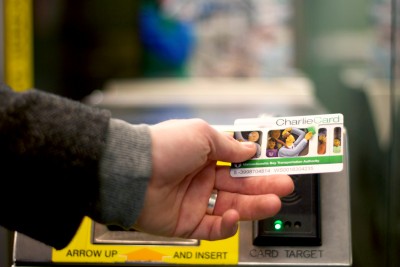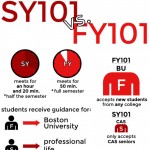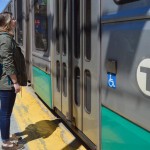
The Massachusetts Bay Transportation Authority met with backlash during a public meeting regarding a potential fare increase.
Frank DePaola, general manager of the MBTA, addressed concerns that were readily voiced by the public who attended the meeting Tuesday in the Chelsea High School auditorium in Chelsea. Many voiced concerns for the rise in prices, the effects of this rise on consumers and the results it will have on the transportation system.
The MTBA faces a deficit of $242 million and is trying to raise revenue in order to shrink the gap and improve service conditions. DePaola claimed that raising fares would be a “last resort,” stating that cost control was a first priority.
DePaola introduced two options in the fare proposal, although the final decision could potentially be a combination of both. One option offers an increase in single-ride fares of approximately 5 percent and a systemwide average increase of 6.71 percent. The second option offers an increase in single-ride fares of approximately 10 percent and a systemwide average increase of 9.77 percent.
The current single-ride rate for the T, when using a Charlie Card, stands at $2.10. A proposed increase of 4.8 percent would bring the rate to $2.20, and an increase of 7.1 percent would bring the rate to $2.25.
According to the MBTA Fare Proposal, the changes linked to these options include the creation of a single express bus fare and a single reduced-fare pass for students, seniors and persons with disabilities, as well as cash fares set at 25-cent increments.
DePaola said proposals made in the past offered random and dramatic increases with serious reduction of service.
Transportation for Massachusetts, a coalition of organizations present at the public meeting, urged the MBTA to look elsewhere for revenue, claiming that a fare increase of more than 5 percent is unnecessary and will negatively affect riders, according to Josh Ostroff, partnerships director of T4MA.
“Increasing fares will have the effect of encouraging people to drive instead of taking the T, which is much more likely now that gas prices are so low,” Ostroff said. “That will have a negative consequence on congestion and the environment.”
Ostroff emphasized that even a 7-percent increase in fares would be detrimental to those living in poverty and would ultimately go against the mission of the MBTA to serve everybody. Moreover, he argued the rise in prices would have a minimal impact on reducing the MBTA’s debt, rendering the effort useless.
“The MBTA needs hundreds of millions of dollars per year to maintain their aging system and make necessary improvements,” Ostroff said. “That is far more than they will ever achieve by increasing fares.”
Jim Stergios, executive director of Pioneer Institute, underlined in an email the effects the proposal will have on riders and the T system.
“The T is unfortunately accustomed to running an inefficient operation, with areas of egregious waste, and then coming back to the fare payers and the legislature for a bailout,” Stergios wrote in the email. “That has to stop. Otherwise, the T’s top brass and its unions will never understand that it is their business to demonstrate improved value for fare increases or greater public investment. The T has to understand that it must earn fare increases.”
Jason Johnson, spokesperson for the MTBA, said, “a series of 10 public meetings on fare changes will be followed by a vote of the T’s Fiscal and Management Control Board.” The vote is expected to take place in March.
Several attendees and Boston residents voiced their strong reservations following DePaola’s presentation.
Nelson Martinez, 18, of Chelsea, spoke out after the meeting in opposition to MBTA’s proposal.
“I’ve taken the bus since the sixth grade, and I can’t count how many times I’ve literally had just enough money to get a bus ride home,” he said. “It’s really useful to just have to pay 80 cents to go home. Any bus fare increase would make it a lot harder for me to go from place to place.”
Sylvia Ramirez, 44, of Chelsea, claimed after the meeting that she and four of her children ride the T daily, and a fare increase would be a huge constraint to her budget.
“It’s already enough that I have to put aside money for the MTBA, my son’s youth pass, also lunch money and on top of that, groceries, mortgage and all of the other utility bills,” she said. “If it increases, that means that I need to add more money to that budget that I don’t have.”
Niles Draper, 40, of South Boston, said he would not pay higher fares given the deteriorated condition of the T.
“Just like any other investment, they need to show me something before I give them more money, and every year they get worse and worse,” he said. “They need to clean up their management process before I’m willing to give them more dollars.”




